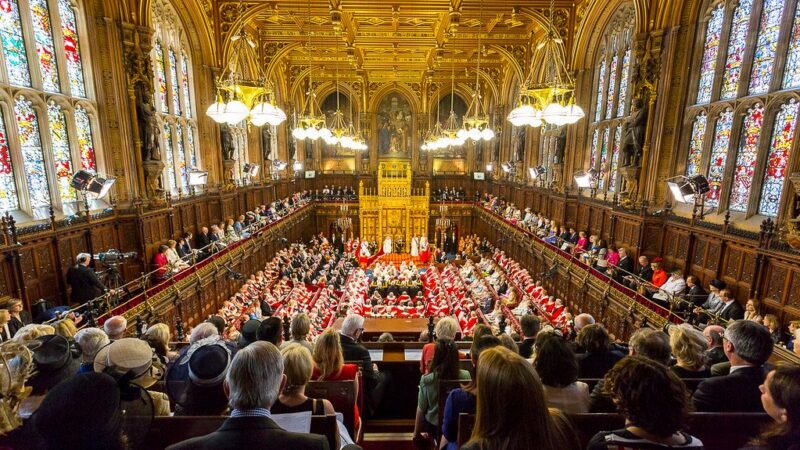
It is an important and challenging time for the country. The last six years have been defined by political instability. The Brexit referendum exposed the lack of control many people felt at the time and still feel today. At a national level, we have experienced five different Prime Ministers in six years, compared to just three in the previous 19. In 2022 alone, there have been three Prime Ministers.
The continuing volatility in Westminster has contributed to long-standing distrust in our politics. The current context of evermore strained public services amid a cost-of-living crisis will only add to this. Something isn’t working. Those in power in Westminster are not trusted by those who elected them. Voters do not feel like they have ‘taken back control’ in any meaningful sense – they can’t make decisions that affect their local area, even though we know local people are often best placed to do so.
Gordon Brown’s report on the commission on the UK’s future – launched on Monday in Leeds – is a valuable contribution to the debate on how we restore trust in our politics. It presents a bold offer on devolution of power and constitutional reform for the Labour Party to take forward to the next election.
This is needed. Polling for the We’re Right Here campaign has found that almost half of people (44%) feel they have no control of important decisions that affect their neighbourhood and local community. At Power to Change, through our work supporting community businesses, we know that some decisions are best made by local people. Indeed, the most successful regeneration initiatives have had community-led elements to them.
The Brown report moves the party away from a politics that finds it hard to trust ordinary people. It recommends that the principle of subsidiarity – that decisions should be made as close to the local level as meaningfully and practicably possible – becomes a legal requirement alongside a push for ‘double devolution’, giving communities more of a say on issues that affect them, the services they use and the places where they live. These are strong recommendations that build on the recent community-powered announcements made by Shadow Work and Pensions Secretary Jonathan Ashworth, and Shadow Levelling Up Secretary Lisa Nandy.
There is a risk for Labour, however. With the boldness and broad scope of the Brown report comes the danger that the community-powered elements of the report are lost as Labour begins to draft its manifesto for the next election.
This would be a mistake. The public’s preference is for community power to restore their trust in politics. In exclusive polling for Power to Change by Savanta ComRes, we found that 67% of the public think giving more power to local people is likely to restore their trust in politics, compared to just 52% who said the same about abolishing the House of Lords and replacing it with an elected chamber.
The Labour Party doesn’t need an internal debate on House of Lords reform, which past experience shows may not be delivered, and our polling shows it is not the public’s preference for restoring their trust. Labour needs to commit to community power and carry through that agenda to the next election – and into office should they win.
There are ready-made solutions that would give Labour the tools to unlock community power and restore trust in politics. Labour should introduce a Community Power Act to change where power lies in England. The Act would give communities a right to control spaces, services and spending decisions in their local area. This would help establish a dynamic new form of governance at the local level, leading to more responsive public services, better decisions about local public spending and greater local power and say over important buildings and spaces. This is a practical vehicle to deliver on recommendations two and 15 in the Brown report.
Labour should also expand and extend the community ownership fund to £300m over four years to financially empower communities. This could put 1,300 spaces into stable community ownership, which would create at least 5,000 jobs and 30,000 volunteering opportunities. This would complement existing measures Labour has adopted to boost community ownership, such as a Community Right to Buy.
Labour is closer to office than it has been for a generation. To restore trust in politics, public opinion and deliverable solutions must be front of mind. That is why Labour must commit to carrying forward the community-powered elements of the Brown report – namely recommendations two and 15. It is here, not abolishing the House of Lords, where Keir Starmer’s Labour Party can restore trust in politics. The solutions are there. Labour just needs to grab them.




More from LabourList
Turning the page? Labour’s recovery in the polls show a path to 2029 victory
Restoration announce recommendations for NEC candidates
‘Factionalism at the top is weakening Labour – and handing a gift to Reform’